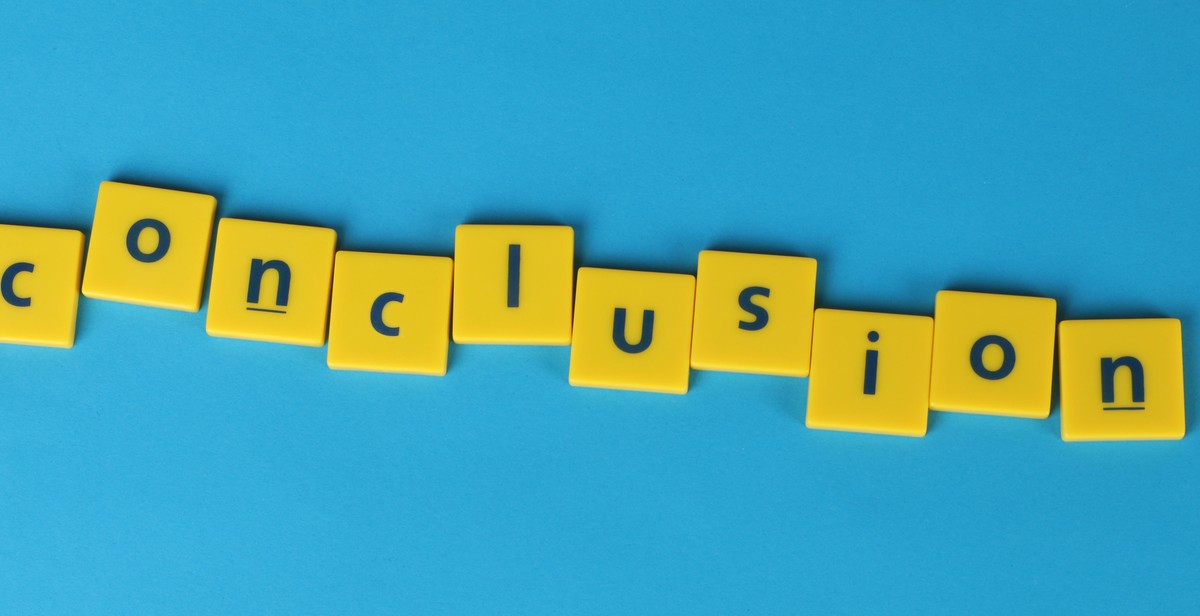When Love Takes Control: Understanding Psychological Manipulation
Love is a beautiful feeling that everyone desires to experience. However, sometimes love can take a dark turn and become a tool for manipulation. Psychological manipulation is a subtle and often unnoticed form of abuse that can occur in any type of relationship.
As a love and relationships psychology guru, I have seen countless cases of psychological manipulation in my years of experience. It can be difficult to recognize and even more challenging to break free from. That’s why I’ve decided to write this article to help you understand what psychological manipulation is, how it can affect you, and what you can do to protect yourself.
What is psychological manipulation?
Psychological manipulation is a form of emotional abuse that involves using deceptive and underhanded tactics to control someone’s thoughts, feelings, and behaviors. It can occur in any type of relationship, including romantic relationships, friendships, and even in the workplace.
Manipulators often use tactics such as gaslighting, guilt-tripping, and emotional blackmail to gain control over their victims. They may also use love and affection as a tool to manipulate their partner into doing what they want.
How can psychological manipulation affect you?
Psychological manipulation can have long-lasting effects on your mental health and well-being. Victims may experience anxiety, depression, and low self-esteem. It can also lead to feelings of confusion, self-doubt, and a loss of identity.
If you suspect that you may be a victim of psychological manipulation, it’s important to seek help and support. Breaking free from a manipulative relationship can be difficult, but it’s essential for your mental and emotional health.
What can you do to protect yourself?
The first step in protecting yourself from psychological manipulation is to recognize the signs. Some common red flags include feeling like you’re constantly walking on eggshells, feeling guilty or responsible for your partner’s emotions, and feeling like you’re losing yourself in the relationship.
If you suspect that you’re being manipulated, it’s important to reach out for help. Talk to a trusted friend or family member, or seek the assistance of a professional therapist. Remember, you deserve to be in a healthy and loving relationship.

Defining Psychological Manipulation
As a love and relationships psychology guru, I have come across numerous cases of psychological manipulation in relationships. It is a form of emotional abuse that can be difficult to recognize, and it can have long-lasting effects on the victim’s mental health.
What is Psychological Manipulation?
Psychological manipulation is the act of using deceptive or underhanded tactics to control or influence someone’s behavior, thoughts, and feelings. It can involve using guilt, fear, or shame to manipulate the victim into doing what the manipulator wants, or it can involve more subtle tactics like gaslighting or love bombing.
One of the most insidious aspects of psychological manipulation is that it can be difficult to recognize. The manipulator may use charm, flattery, or other tactics to make the victim feel special and loved, but then turn around and use emotional blackmail or other manipulative tactics to control their behavior.
Types of Psychological Manipulation
There are several types of psychological manipulation that can occur in relationships. Some of the most common include:
- Gaslighting: This involves making the victim doubt their own sanity or perception of reality, often by denying things that actually happened or insisting that the victim is overreacting.
- Love bombing: This involves showering the victim with love and affection, often in the early stages of a relationship, in order to quickly establish emotional dependence and control.
- Guilt tripping: This involves making the victim feel guilty or responsible for the manipulator’s emotions or actions, often by using statements like “If you loved me, you would…”
- Isolation: This involves cutting the victim off from friends, family, or other sources of support in order to increase their dependence on the manipulator.
It is important to recognize the signs of psychological manipulation in order to protect yourself from emotional abuse. If you suspect that you or someone you know is being manipulated, it is important to seek help from a qualified mental health professional.

Recognizing Psychological Manipulation in Love Relationships
Love is a beautiful feeling that can make us feel alive and happy. However, sometimes love can become toxic and controlling. When this happens, it is important to recognize the signs of psychological manipulation in love relationships.
Signs of Psychological Manipulation in Relationships
Psychological manipulation can be subtle and difficult to detect. Here are some signs that your partner may be manipulating you:
- Your partner tries to control your thoughts and actions
- Your partner uses guilt trips to get what they want
- Your partner makes you feel responsible for their happiness
- Your partner isolates you from friends and family
- Your partner threatens to leave or harm themselves if you don’t comply with their demands
- Your partner makes you doubt your own thoughts and feelings
Why do People Use Psychological Manipulation in Relationships?
People use psychological manipulation in relationships for various reasons. Some people may feel insecure and use manipulation as a way to control their partner. Others may have a need for power and use manipulation to maintain control over their partner. Whatever the reason, psychological manipulation can cause significant emotional damage to the victim.
The Psychology of Psychological Manipulation
Psychological manipulation is a form of emotional abuse that can have long-lasting effects on the victim’s mental health. The manipulator may use tactics such as gaslighting, where they make the victim doubt their own reality, or love bombing, where they shower the victim with affection to gain their trust and loyalty.
| Psychological Manipulation Tactics | Description |
|---|---|
| Gaslighting | Manipulator makes the victim doubt their own reality |
| Love bombing | Manipulator showers the victim with affection to gain their trust and loyalty |
| Isolation | Manipulator isolates the victim from friends and family to maintain control |
| Guilt tripping | Manipulator uses guilt to get what they want from the victim |
It is important to recognize the signs of psychological manipulation in love relationships and seek help if you are a victim. Remember, love should never be controlling or manipulative.

The Effects of Psychological Manipulation in Relationships
Psychological manipulation can have a profound impact on both the manipulated partner and the manipulator themselves. In this section, we will explore both sides of the equation.
The Impact on the Manipulated Partner
Being manipulated can take a toll on a person’s emotional and mental well-being. Manipulative behavior can leave the manipulated partner feeling confused, anxious, and powerless. They may feel like they’re walking on eggshells around their partner, never knowing what might set them off.
Over time, the manipulated partner may begin to lose their sense of self. They may feel like they’re constantly bending to their partner’s will, and that their own needs and desires don’t matter. This can lead to feelings of resentment, anger, and depression.
In some cases, the manipulated partner may even start to doubt their own sanity. Gaslighting, a common form of psychological manipulation, involves the manipulator making the manipulated partner question their own perceptions and memories. This can lead to confusion and self-doubt.
The Manipulator’s Behavior and Mindset
The manipulator’s behavior and mindset can also be affected by their manipulative actions. In some cases, the manipulator may not even realize that they are engaging in manipulative behavior. They may believe that their actions are justified, and that they are simply trying to “help” their partner.
However, if the manipulator is aware of their behavior, they may experience feelings of guilt and shame. This can lead to a cycle of manipulation and apology, where the manipulator engages in manipulative behavior and then tries to make up for it by being overly affectionate or showering their partner with gifts.
Manipulative behavior can also have a negative impact on the manipulator’s own sense of self. They may start to see themselves as “bad” or “evil,” and may struggle with feelings of self-loathing and self-doubt.
Overall, psychological manipulation can have a profound impact on both the manipulated partner and the manipulator. It’s important to recognize the signs of manipulative behavior and seek help if you or someone you know is experiencing it.

How to Deal with Psychological Manipulation in Relationships
Dealing with psychological manipulation in a relationship can be a difficult and overwhelming experience. However, there are ways to overcome this issue and take control of your life. Here are some effective ways to deal with psychological manipulation:
Setting Boundaries
One of the most important ways to deal with psychological manipulation is by setting boundaries. It is essential to communicate your limits and expectations clearly to your partner. Identify what behaviors are unacceptable and make it clear that you will not tolerate them. This will help establish healthy boundaries and prevent your partner from crossing them.
It is important to remember that setting boundaries is not about controlling your partner. It is about taking care of yourself and ensuring that you are being treated with respect and dignity. By setting boundaries, you are taking a step towards creating a healthy and fulfilling relationship.
Seeking Professional Help
If you are struggling to deal with psychological manipulation in your relationship, seeking professional help can be beneficial. A therapist or counselor can help you identify and address the underlying issues that are causing the manipulation. They can also provide you with the tools and techniques to cope with the situation and make positive changes in your life.
Professional help can also provide you with a safe and confidential space to express your feelings and concerns. This can be especially helpful if you feel like you cannot talk to anyone else about what you are going through.
Ending the Relationship
Ending a relationship can be a difficult decision, but it may be necessary if the psychological manipulation continues despite your efforts to set boundaries and seek professional help. If you feel like your partner is not willing to change their behavior or if the relationship is causing you more harm than good, it may be time to end it.
Remember that ending a relationship is not a failure. It is a courageous step towards taking care of yourself and creating a better future for yourself. It is important to seek support from friends, family, or a therapist during this time.
Dealing with psychological manipulation in a relationship can be challenging, but it is possible to overcome it. Setting boundaries, seeking professional help, and ending the relationship are all effective ways to take control of your life and create a healthier, happier future.

Conclusion
Psychological manipulation in relationships is a serious issue that can have long-term effects on an individual’s mental health and well-being. It is important to recognize the warning signs of manipulation and take action to protect oneself.
As a love and relationships psychology guru, I have seen firsthand the damage that psychological manipulation can cause in relationships. It is not uncommon for individuals to feel trapped and helpless in these situations, but it is important to remember that there is always a way out.
Recognizing the Warning Signs
From gaslighting to guilt-tripping, there are many different tactics that manipulators use to control their partners. It is important to recognize these warning signs and take action before the situation becomes too overwhelming.
- Constant criticism and belittling
- Isolation from friends and family
- Gaslighting and denial of reality
- Emotional blackmail and guilt-tripping
- Threats and intimidation
Taking Action
If you find yourself in a manipulative relationship, it is important to take action to protect yourself. This may include seeking therapy, setting boundaries, or even ending the relationship altogether.
Remember, you deserve to be in a healthy and loving relationship where you are respected and valued. Don’t let psychological manipulation take control of your life.
| Author | Your Name |
|---|---|
| Published | August 12, 2021 |
| Modified | August 12, 2021 |
